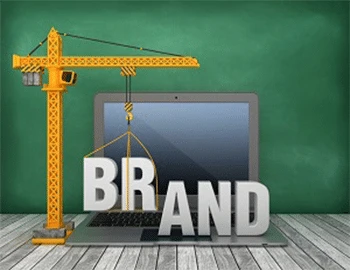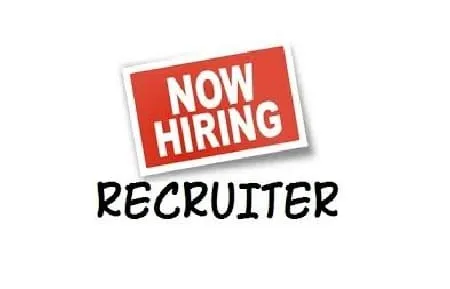The Construction Career Plan

The Construction Career Plan
In this career plan, we will cover basic incomes and job descriptions from entry-level workers to supervisors and project managers, to general managers and executive-level positions. Construction and engineering encompass a wide variety of jobs; this brief overview aims to give you some examples to help with career planning.
Entry-Level Construction and Craftsmanship
An entry-level worker may earn $10 to $15 per hour. Entry-level workers are tasked with removing debris, distributing materials, maintaining tools, and working at heights. These workers must have a high school diploma or equivalent, and can be a laborer in areas such as carpentry, general contractors, landscaping, painting, commercial construction, flooring and tiling, masonry, roofing, etc.
After four years, they can earn $25 to $45 per hour as a craftsperson. Typically starting as a construction helper, workers may choose to specialize and earn certifications in welding, building scaffolding, or any other specialization. They also have the choice of becoming an apprentice with an electrician, plumber, or carpenter.
Project Supervisors and Project Managers
After a worker develops experience as a journeyman, they can move up to the project manager position. A management degree, such as an MBA, is preferred. Project supervisors earn about $79,000 a year, and project managers earn about $91,000 per year in different markets: power, industrial, water, manufacturing, transportation, petroleum, building, sewers, telecoms, and hazardous waste. Withing those, project supervisors and managers can work on four different types of projects (residential home building, heavy industrial, commercial and institutional, and engineering construction), in six general types of construction subsets (agriculture, residential, commercial, institutional, heavy civil, and environment).
Construction project supervisors are in responsible for establishing a construction plan and implementing it. In addition, their role includes:
- Working to work with vendors and site managers to make sure all problems are taken care of properly
- Coordinating staff and making sure to meet milestones
- Ensuring the projects meet safety and technical specifications
- Taking inventory of supplies, including tools and equipment
- Collecting and analyzing data to make cost and schedule estimates
A parallel role is that of the construction project manager, who comes up with the concept, design, development, and gets contract documents together. Their responsibilities are to:
- Estimate and negotiate costs per project
- Formulate a budget and create the schedule
- Communicate with clients and stakeholders
- Talk to workers about technical and contract details
- Work with building and construction specialists.
General Manager and Top Executives
General managers can earn $84,000 to $150,000 a year. Typically, they have at least an associate’s degree, but many have a bachelor’s degree in construction science, building science, construction management, or engineering. They tend to be certified by the Construction Management Association of America or the American Institute of Constructors. Their job is to calculate cost estimates, put together budgets and schedules, explain contracts and technical information, make sure projects meet building and safety codes, and collaborate with clients as well as architects, engineers, inspectors, and other specialists.
Construction Executives can earn $120,000 to $170,000 a year. A lower-level executive may oversee team projects and act as a team leader. A CEO oversees the operation of the entire construction company. They may meet with high-profile clients and bring in business. The CEO usually dictates operation decisions.
Michael DeSafey is a leading executive recruiter for professionals in the construction, engineering and environmental industries. He is currently the President of Webuild Staffing www.webuildstaffing.com . To learn more about Michael or to follow his blog please visit www.michaeldesafey.com
Construction and Engineering Jobs Overseas

Construction and Engineering Jobs Overseas
Finding a high-paying job in your construction management or engineering career can be a rewarding experience that will greatly enhance your resume and professional brand. When you are ready to embark on the next stage of your career, it is important to not only focus on the job market in your local area, but to look internationally as well. Many engineering and construction professionals find rewarding and high-paying positions overseas, with opportunities for travel as well as for professional development. Here is a short overview of common construction and engineering jobs with their average salaries abroad (converted to USD).
Construction Superintendents and Construction Managers
Construction superintendents and managers supervise projects in which homes, commercial structures, and other buildings are built. Those who can oversee such construction projects are in demand, especially in countries that have been undergoing much development in recent years and have booming construction industries, such as the United Arab Emirates ($61,000/year), Saudi Arabia ($44,000/year), and New Zealand ($63,000/year).
Mechanical Engineering
Common mechanical engineering jobs include biomedical engineering, combustion engine engineering, and fuel-efficient vehicle engineering. Mechanical engineers are in demand especially in Germany but will do well in many overseas environments. Those seeking mechanical engineering jobs should consider Germany ($61,000/year), Singapore ($61,000/year), Switzerland ($100,000/year) Australia ($93,000/year), Canada (both $82,000/year), Japan ($82,000/year), Norway ($70,000/year), and South Korea ($77,000/year).
International Petroleum Engineering and Chemical Engineering
Chemical engineers specialize in developing manufacturing processes using chemicals, while petroleum engineers seek new sources of fuel for energy needs. Those who enter their careers for environmental reasons are in demand in places such as Switzerland and Canada. In Canada, petroleum engineers can earn an average of $118,000 per year, while chemical engineers can earn an average of $85,000. In Switzerland, chemical engineers are in demand and can earn an average of $122,000 per year. Japan is also another good destination for chemical engineers, and pay translates to about $104,000 per year on average.
Civil Engineering
Civil engineers design and execute plans for construction and infrastructure projects and are in demand everywhere in the world, where the construction industry is rapidly growing and new bridges, roads, and other infrastructure projects are needed. New Zealand has a shortage of civil engineers, providing an excellent opportunity for international career development, and pays an average of $71,000/year. Work can be found in Canada too, where the average salary is about $63,000 per year in the Toronto area. Civil engineers can also turn to places such as the United Arab Emirates (average $72,000/year), where a fast-growing construction industry means a pressing need to expand and upgrade current infrastructure. India is also rapidly expanding its construction economy and is looking for civil engineers, and while an average salary of around $12,000 USD per year may sound unappealing, it takes into consideration a much lower cost of living.
Where does one start the process of applying for these positions? When considering a position overseas, it is best to start with research: studying the reviews for engineering and construction jobs and reaching out to current and former employees is essential. Pay, working hours, accommodations, and perks can vary. Some companies will provide food and board to their employees, while in some countries, foreign workers live in designated complexes. You should also consider the fact that you may need to leave your family behind when committing to such a career choice.
Michael DeSafey is a leading executive recruiter for professionals in the construction, engineering and environmental industries. He is currently the President of Webuild Staffing www.webuildstaffing.com . To learn more about Michael or to follow his blog please visit www.michaeldesafey.com
How to Leverage Your Professional Brand to Advance Your Career

How to Leverage Your Professional Brand to Advance Your Career
So, you’re looking for a new position or hoping to increase your company’s revenue? While you might have beefed up your resume, it’s also important to focus on building your professional brand. This goal is something to focus on in the short term while considering new job opportunities and to keep working on over time. The more effort you put into building your professional brand, the more results you can expect to obtain.
The bottom line is this: With greater credibility, people will trust you with bigger projects and ultimately feel satisfied with the results you deliver!
With a pattern of happy customers, albeit employers or private clients whom you complete construction projects for, you can attract more lucrative projects or full-time positions.
What is a Professional Brand?
A professional brand consists of the different impressions that a potential employer, customer or business forms about you. To create an authentic brand, you must work hard to build a solid reputation in your field.
Here are some tips that will help you along the way:
- Research the entry-level requirements for the construction or engineering profession you wish to enter.
- Seek out suitable career and educational opportunities to build this background.
- Start applying for jobs in your field. Keep in mind that your current company may not have all the roles needed to prepare for advancement in your field. You may need to take a second job or change employers over time to obtain the required experience.
- Build your network of contacts. This includes contributing to the field by attending professional development and industry events and by participating in online dialogues.
- Keep your resume updated with a detailed summary of your work experience and career achievements.
- Ask happy clients and bosses to write recommendation letters for you and keep them in your online portfolio.
Keep Your Professional Lifestyle
There is much competition for jobs in construction and engineering professions. Before you assume having a fabulous work history is all you’ll need, please realize that your brand rests on your ability to regulate your behavior when you’re not at work. Building a strong brand means keeping important boundaries between your professional and personal lives and being selective about what you post online.
Here are some things to keep in mind when enjoying your personal time:
- Don’t let yourself be filmed without your permission.
- Don’t post unprofessional comments, videos, or photographs anywhere on social media.
- Don’t give social media contacts unauthorized access to “tag” you or make changes to your professional or personal profiles.
- Monitor all websites and blogs that may be attributed to you and your company.
- Maintain a good credit record and avoid any criminal activities.
In construction and engineering professions, clients pay big money for projects. They want to place their trust in reliable professionals. They don’t want to worry about their projects having too much risk because there are problems with your work history or online behavior. If you don’t want a potential employer to use something from your past to influence their decision to hire you, don’t do it. By maintaining appropriate boundaries, you will be ready to assume more challenging roles in your career.
Michael DeSafey is a leading executive recruiter for professionals in the construction, engineering and environmental industries. He is currently the President of Webuild Staffing www.webuildstaffing.com . To learn more about Michael or to follow his blog please visit www.michaeldesafey.com
Job Success Tips For Upcoming Engineering & Construction…

Job Success Tips For Upcoming Engineering And Construction Management Graduates
At the top of that mountain of work you did to earn your degree, you can see a world of possibilities. You may not yet know what you’re capable of but you’ve gained some confidence in your abilities and you’re ready to seek out your first independent job with the title you worked hard to achieve. What skills should you ensure stand out on your resume? What are construction management and engineering employers looking for when they’re choosing someone to hire? There is no guaranteed formula that works for every single employer but there are a few tips that can help you stand out in your field and get the job you hope for.
Exhibit Your Initiative
It’s one thing to say that you’re a “self-starter” but most employers have heard this before from recent graduates. On your resume, make sure that your previous work experience or your experience at college has some point that shows your leadership skills and ability to take initiative. For instance, if you led a successful project or initiated an idea on your own this would be an effective display of your skill as a self-starter. The major point is that saying isn’t enough. You have to prove it!
Stay the Course
An important aspect of the job for construction managers and engineers is to be able to see it through from start to finish. If you’re new to the field, employers won’t yet know that you’re trustworthy in this aspect. Testimonials from previous clients and references from past employers are good ways to show that you are trustworthy but another way you can stand out is to show that you have ideas about the project for its beginning and its end. If you’re hoping to get hired, any project manager or engineer can show how they’ll start a project but if you show how you might finish it and interesting points that you can contribute throughout the project, it is indicative of your intention to stay with the project from inception to completion.
Communication and Flexibility
The logistics have to do with your competency and showing that you can carry out the necessary skills to do the job. Communication is another story. If you’re hoping to stand out with a particular job, find out the details of what the client is looking for. Take a look at previous projects and what you can find out about the current project. Do your best to get to know the client before you ever even meet them for the first time. Check social media, websites, and if possible, visit places that were built by this client. Learn what they’ve done and why so that you have something to say that shows you’ve done your homework. Not only does this show the client that you’re willing to do a little extra but it also shows that you’re serious about working with them. You’ll have to communicate with this client throughout the project and understand its scope in order to be the construction manager or engineer. You can’t do that if you don’t know anything about them and that will become apparent a few minutes into your first conversation with them.
Own Your Mistakes
You might think that any blemish on your resume or in your work history is something that you must stay away from at all costs. But you can make these past mistakes work in your favor by showing how you overcame them. If you can show that you can handle problems when they arise, this is a great way to stand out as a construction manager or engineer. Many candidates will do whatever they can to prove their worth and that’s also important but if you can prove that you know how to smooth out the bumps in the road instead of letting them stop you, then your value will increase. Every person on your project and every circumstance is unique. Clients change their minds and people (including you) make mistakes. Show that you can handle this and make it work for you and you will be unstoppable.
Michael DeSafey is a leading executive recruiter for professionals in the construction, engineering and environmental industries. He is currently the President of Webuild Staffing www.webuildstaffing.com . To learn more about Michael or to follow his blog please visit www.michaeldesafey.com
Looking for an Engineering Job? Here are 5 Job Search Productivity Tips

Looking for an Engineering Job? Here are 5 Job Search Productivity Tips
Are you looking for an engineering job? We know how hectic, time-consuming, and financially draining the exercise can be. Worse still, with so many qualified job seekers in the pool, finding an amazing company to absorb you can be difficult.
But before you give up, there are tips you can employ to make the search easy while maintaining your sanity throughout the process. With this in mind, here are five proven job search productivity tips that will help you land your dream engineering job!
Hone in on a Specific Engineering Niche
The engineering field is incredibly broad and features several branches such as electrical, mechanical, civil, software, petroleum, and biomedical engineering. If you haven’t specialized yet, hone in on a specific niche to increase your chances of getting better opportunities in the market.
While being a general engineer may expose you to numerous options, choosing a specific area exposes you to higher-paying jobs and allows you to sharpen your skills and expertise.
Build an Engineer’s Portfolio
Once you’ve chosen a specific niche you’d like to work in and have trained in, the next step is to build an impressive engineer’s portfolio. Whether you’ve worked before or are new in the industry, you can build a great portfolio that will impress the hiring team and land you a job.
Some of the things to include in your engineering portfolio include the following:
- Your professional resume
- A short bio outlining your education, strengths, and achievements in the industry
- Details on coursework, internships, previous jobs including details of the duties assigned to you, and any volunteer engineering work you did.
- Hobbies and interests
If you’ve worked before, don’t shy away from providing evidence of technical skills. Have you undertaken some electrical work in the past? Have you helped build a certain piece of machinery or developed software? Provide evidence of this as it gives the interviewing panel a view into your skills and competence.
Also, if you have any non-technical skills, detail them as well. For example, if you offered domestic or commercial energy audit consultancy service, detail this in your portfolio. It will go a long way in giving you a competitive edge.
Know What The Employer Wants
You are a professional electrical, mechanical, or civil engineer. You know that and so does your potential employer. But do you know what the employer wants? Why do they want to hire you? How do they expect your particular skill set to help grow their company?
Knowing what your employer wants is your greatest selling point in an interview. You will use this to show them you can solve problems for them. Research as much as you can about the company and look for ways your engineering skills could help grow the company.
A few examples include the following:
- Check the company’s annual reports and financial statements (if available) to get a feel of where it stands in terms of profitability.
- Get details of the company’s customers to know what they want and how you can add value to them.
- Analyze the company’s expenditure to find ways of cutting costs.
Firms don’t just want engineers who will maintain software or install electric systems — they need problem solvers as well. Prove this and you’ll be a valuable asset to your next employer.
Leverage Social Networks
According to a survey done by experts, 85% of all job positions are filled through networking. Where do other engineers hang out? Join these social joints and interact with others in your field. As you share ideas and engage in banter, you may hear about a job opening or even find yourself exchanging conversation with an HR manager in a company you’ve been eyeing.
Some tips to leverage social networks are:
- Reach out to alumni in your engineering school
- Join engineering associations
- Check engineers pages and groups on social media
- Network with current and former colleagues
Supplement Your Credentials with Business Experience
Finally, supplementing your engineering credential with business experience is an excellent way of developing leadership skills. You could take a business course and get a certification for it. Business experience improves your communication, collaboration, and teamwork skills.
The skills and experience make your employer confident in your ability to lead both small and large teams. This can give you a competitive edge over other engineers who don’t have business skills or experience.
Up Your Job Search Skills Today
Follow these tips to increase your chances of landing the engineering job you’ve been searching for. If you need professional help, look no further and contact Webuild Staffing for professional recruitment services!
Michael DeSafey is a leading executive recruiter for professionals in the construction, engineering and environmental industries. He is currently the President of Webuild Staffing www.webuildstaffing.com . To learn more about Michael or to follow his blog please visit www.michaeldesafey.com
Job Interviewing during the Corona Virus Outbreak in the Construction, Engineering industries.

Job Interviewing during the Corona Virus Outbreak in the Construction, Engineering industries.
Conducting a job search is a stressful endeavor for individuals. Conducting a job search when the country is being affected by a pandemic changes the rules temporarily for individuals and employers alike when interviewing for open positions in the construction and engineering industries.
With the outbreak of the novel corona virus (COVID-19) here in the United States organizations and individuals should consider altering their recruiting / interviewing routines to take into consideration how candidates interact with organizations.
How employers interview candidates for jobs by utilizing technological advancements and jobseekers utilizing common sense actions can result in reduction of the transmission of the novel corona virus throughout communities.
Individuals should not stop their job search, but rather take the time to utilize the many opportunities to reach out to employers via responses to job announcements, online networking through social media, LinkedIn, email inquiries and conducting interviews with potential employers via telephone and video meetings. This will allow you to set the ground work needed for future advancements in the interview process as the risk / disease spread slows over time.
Many larger organizations today have already altered their interviewing techniques to take advantage of online video meetings. Limiting the physical contact / face to face interactions through utilization of online meeting applications like zoom.us, gotomeeting.com, etc.. These applications have made it possible for one on one interactions, group meetings that essentially replicate an in-person interview experience from the comfort of your home or office.
Many smaller organization’s today though may have not yet implemented these changes and/or should you find yourself in a situation in which you need to be present for an in-person meeting there are simple actions you can take to make sure you keep yourself and others around you safe.
- If you believe you may be sick with the common flu, illness and/or corona virus; stay home, reach out to health professionals for medical attention so you do not infect others. Your health is much more important than a job and advising a potential employer you are not feeling well will most likely garner good will in the long run and allow them to reschedule your interview for a better time for everyone.
- The easiest thing you can do to help reduce the spread and possible infection of the novel corona virus is wash your hands. The simple 20 second rule of vigorously washing of your hands with soap and/or hand sanitizer at least a few times a day will reduce your potential of possible infection.
If you are going to have a in-person meeting and/or interview. Wash your hands before the meeting and right after your meeting. As interviews are stressful, try to keep your hands away from touching your face. If you have to use a knuckle, side of your sleeve or tissue.
- Travel with the basics; bring a small bottle of hand sanitizer and tissues with you. Should you find yourself in a situation where you may feel like you need to touch an elevator button, pen, desk surface, etc. Having the essentials with you will ease some of the stress of the situation.
When scheduling interviews, typically an employer will provide you with a few times to choose from, try to select one in which will provide you the flexibility to avoid large crowds of people should you be traveling via public transportation or train. Utilizing social distancing will aid greatly in your travels. If you are using an elevator, touching desk surfaces, door handle, etc. try using your elbow, knuckle, elbow, etc.
- As it is customary in business when you meet with someone to provide a handshake; in the days of the novel corona virus you should politely introduce yourself and state that at this time it may be best for forego the handshake. The individual you are meeting will most likely be in agreement. Using some humor always helps in these types of situations. Remember the other person is as worried about the transmission of the virus as you are.
As the novel corona virus (COVID-19) situation is changing daily, it is advisable to check in with community health organizations, healthcare providers and/or the CDC websites for important updates related to the spread of the virus and actions you can take to keep safe and healthy.
Michael DeSafey is a leading executive recruiter for professionals in the construction, engineering and environmental industries. He is currently the President of Webuild Staffing www.webuildstaffing.com . To learn more about Michael or to follow his blog please visit www.michaeldesafey.com
How To Work Effectively With A Recruiter To Find A Job

How To Work Effectively With A Recruiter To Find A Job
When you are looking for a job in the construction, engineering or environmental industries, one of the best things you can do is work with a recruiter. With an experienced industry recruiter, you will gain access to a higher quality of jobs that may not be advertised in the marketplace and will meet your expectations and skills requirements much better.
However, good recruiters are extremely busy and working with them can be a challenge. So here are a few things you can do to effectively communicate with a recruiter in the industry and accomplish your goal to find the right job faster.
Communicate.. One of the most important things you can do to improve the experience you have when working with a recruiter is to communicate regularly. This could mean simply returning phone calls or emails that the recruiter sends your way. Scheduling a time with them to chat works well, as well as, utilizing email for quick questions or scheduling issues aids in coordinating things. By showing an interest in the jobs a recruiter has available and communicating quickly and efficiently with them is the best way to show your interest in a particular position.
Know Your Core Skills.. Make sure you are able to portray your skills to the recruiter. For example, if you are more experienced in commercial construction and less with residential, this is something you will want your recruiter to know. Taking a look at your specific skill set and discussing this with the recruiter you are working with will aid greatly in them finding the best position to fit your needs. Building a specific set of skills will help them discover jobs that will most fit your experiences. This will help give you a better opportunity of being selected for your job of choice.
Honesty.. Finally, always be honest with the recruiter. Most experienced recruiters have seen everything and can navigate the screening and interview process effectively for you, if they know your career history, salary expectations, etc. For example, if a recruiter has a particular engineering job open, but you may have a negative perspective of the hiring company, be honest about the situation at let the recruiter and let them know. If you have had issues with your last employer or gaps in your employment history take the time to discuss these issues and how that helped shape your career (positives and negatives). A recruiter is very skilled and can find you that perfect position for you, but this requires a straight forward approach on your part.
These are a few of the things that can help make your relationship with your recruiter strong and effective. Make sure you keep them in mind when you are going through the job hunt process.
Michael DeSafey is a leading executive recruiter for professionals in the construction, engineering and environmental industries. He is currently the President of Webuild Staffing www.webuildstaffing.com . To learn more about Michael or to follow his Blog please visit www.michaeldesafey.com
The San Francisco Construction Marketplace Is Growing!! Project Managers Are In Demand…

The San Francisco Construction Marketplace Is Growing!! Project Managers Are In Demand…
It’s a good time to be in the construction industry in San Francisco. The industry in the city is hot, and demand for construction skills is steadily growing. Whether you are a senior construction professional or less-experienced project engineer, you can find opportunities with both large and small construction companies, general contractors, and development firms throughout the bay area.
There are a large variety of construction-related skill sets in demand right now; from commercial, residential to public works and industrial. Companies are looking to fill Project Engineering, Project Management, Superintendent, Estimator, and Operations Managers positions in San Francisco, San Jose, Oakland and East Bay.
Right now, career opportunities are blooming with several great companies. Here are just a few examples:
- A General Contractor in SF has an opening for an Assistant Project Manager. The company is well run with lots of talent and has a history of developing people organically from within; allowing them to advance within the firm as their skills and responsibilities grow.
- A South Bay Engineering Contractor is building one of the most advanced, corporate campus in the region and is seeking a sharp Project Manager to lead construction activities.
- A few residential builders have opportunities for Senior Project Managers and Civil Estimators with an intimate understanding of costing, complex project management, scheduling, and effective construction techniques.
- A Multi-Family Builder on the peninsula is looking for a driven Assistant Project Manager and Superintendent to join their team, leading the development of midrise, high end multi-family developments on the peninsula.
These are just a sampling of the many construction management opportunities in the San Francisco bay area right now; the demand is growing daily for professional staff; So if you have construction experience, a good work ethic, and a desire to advance within a firm now is the right time to reach out and advance your career.
Michael DeSafey is a leading executive recruiter for professionals in the construction, engineering and environmental industries. He is currently the President of Webuild Staffing www.webuildstaffing.com . To learn more about Michael or to follow his Blog please visit www.michaeldesafey.com
The Perfect Cover Letter: Why You Need One When Applying For Your Next Construction, Engineering or Environmental Position

The Perfect Cover Letter: Why You Need One When Applying For Your Next Construction, Engineering or Environmental Position
It may seem that cover letters have gone by the wayside with most companies preferring online applications. Many say that hiring managers and recruiters are actually not even looking at cover letters anymore and that they no longer expect to see a cover letter with an application.
Everything has been streamlined around the resume, but before you go the route that many career advisors are implying with tailoring your resume for each position you apply for, why not give a cover letter another look. Resumes basically state your skill sets and give a brief statement of your accomplishments. They do not give you the abilities to showcase your specific abilities and accomplishments as related to the position you are applying for.
Cover letters, especially for those in the construction profession, give the applicant an opportunity to go into detail about a particular accomplishment and tell a good story. You can direct a cover letter to the specific hiring manager, add personal details and/or elaborate on a project you were involved in. Engineers can cite particular projects that hone in on the requirements of the job. Environmentalists can talk about what resources they may have tapped to help save the environment or their contributions to a specific campaign.
Recruiters often admire the thought and effort put into composing a good cover letter, compared to an adjusted resume. With a cover letter you can state the reasons why you would be a perfect fit for the position. Resumes only showcase work experience and skill sets as a whole. In the construction industry, a well written cover letter can showcase the nuances of what the company should expect from you as an employee as it related to their organization. It also creates a picture of what you are capable of doing.
Engineering the perfect cover letter isn’t hard. In fact, it’s relatively easy to do. It is in the cover letter that allows potential employers to create the first impression of you, before reading the resume. The thought that your resume gets processed automatically should give you some indication of why a cover letter is still important. It should also be stated that a customized cover letter quite often is one of the only ways that engineers and construction professionals can make themselves stand out with potential employers. For most, but not all engineers and construction professionals, there are quite a number of positions they work at throughout their career. A good cover letter can emphasize the accomplishments at one job site or make a case for a required skill set that an employer is seeking.
Working in the construction, engineering or environmental industry today, you need more than a resume in today’s job market to standout. A cover letter will give you that advantage; combining a good cover letter with a good resume will increase your chances of being hired. For assistance in writing a cover letter, check out www.webuildresumes.com
Michael DeSafey is a leading executive recruiter for professionals in the construction, engineering and environmental industries. He is currently the President of Webuild Staffing www.webuildstaffing.com . To learn more about Michael or to follow his Blog please visit www.michaeldesafey.com
Tips For Interviewing The Interviewer; To Make The Best Impression

Tips For Interviewing The Interviewer; To Make The Best Impression
Interviewing is not easy and searching for the job in the construction, engineering and environmental industries is difficult enough on its own.
Interviews are almost like first dates where you are being challenged and judged by the organization you are interviewing with. Most job candidates do not realize though that they have more power than they think in an interview situation.
There is a lack of highly qualified professionals today in the construction, engineering and environmental industries and the truth is that you are also interviewing the organization just as much as they are interviewing you. Is this a company you actually want to work for as a civil engineer? Is this the ideal environment for a biologist? What would be your career path within the organization to achieve your goals?
Having the basic realization that your voice matters in an interview can empower you to take control of your career and find an opportunity that fulfills your career expectations. You are on a mission, after all to find the best job that suits your career needs.
By keeping these basic tips in mind as you interview it will help you find the best job for your career..:
Demonstrate Your Desire To Stick Around…
The interviewer is most likely swamped, wanting to fill open position quickly with qualified personnel. This is especially the case if you are applying for a position with ongoing projects that require immediate leadership and technical expertise. Hiring managers want to know that you are somebody they will not be seeking a replacement for in three months, especially if you are undertaking a major construction project for the company.
Demonstrate Your Institutional Knowledge…
Do your research ahead of time and demonstrate to the interviewer that you are aware of how they operate. Show that you understand their projects and marketplace. You may even want do some research to gain an understanding of their existing projects. Make yourself aware of their competitors and past accomplishments; so that you are ready to ask intelligent questions about the organization and their future growth plans.
Ask Questions..
Asking questions demonstrates interest. Feel free to ask if the position you are interviewing for is new or if there has been another employee working in the role? What projects you would have responsibilities for? Ask the Interviewer their thoughts on the position? Just make sure that you are asking professional questions that will give the employer a favorable impression, as well as, lead you to make a good choice in accepting a position with an employer for your career success.
Take Advantage Of Opportunities To Meet Staff Members…
If you are asked to meet other members of the team, jump on the opportunity. Not only will you be able to see if you are a good fit with other team members, but you can also ask other questions about work-life balance and each employees professional backgrounds and expertise.
Be Aware Of Red Flags..
Look for deal-breakers as you interview including difficult managers, odd personalities, lack of long term work or an uncomfortable workplace. Ultimately, it is important that you trust your instincts and look for work environments that suit your needs.
Just remember: even if your interview does not lead to a new career opportunity, you have gained great experience for the next interview. It will allow you to create a helpful set of skills that will aid you in the future.
Michael DeSafey is a leading executive recruiter for professionals in the construction, engineering and environmental industries. He is currently the President of Webuild Staffing www.webuildstaffing.com . To learn more about Michael or to follow his Blog please visit www.michaeldesafey.com
1% Makes All the Difference..

1% Makes All the Difference..
1% Makes All the Difference…
For even the most well-qualified job seekers, the search for a new job can be time-consuming and exhausting. After all, there are numerous qualified candidates that you must compete against in the construction, engineering and environmental industries. More than that, it can be emotionally exhausting, and you likely will face many closed doors and missed opportunities before you finally find a job in your field.
Many job seekers feel frustrated and let down when they do not see a positive result from their efforts, and others may simply settle with the fact that they put forth some effort to find a job today. When it comes to looking for a job in a competitive industry such as this, a different approach is needed
Those who follow the one-percent rule and put forth a little extra effort may ultimately enjoy better results from their efforts.
How the One-Percent Rule Relates to Your Job Search
The one-percent rule generally states that you can give that extra little bit of effort, or you can settle for less than you could possibly be doing. Many job seekers will settle for one-percent less when searching for a job. For example, they may not customize their resume and cover letter so that they are tailored specifically for the job they are applying for. They may state that they put in a full day’s work looking for new job openings, so they may not continue to look for a job in the evening. Perhaps they will skip an important networking event or job fair because they are tired from looking at job listings all day. However, this extra bit of effort that you exert may be the effort that makes all the difference in helping you to land a job days, weeks or even months sooner than you otherwise would.
Applying the Rule to Your Job Interviews
Likewise, the one-percent rule can be applied to your job interviews, and this applies to whether you are applying for a construction foreman position, a structural engineering desk job or any other position. Will you review interview questions and ask a friend to help you with a mock interview scenario? During the interview, will you act positive and excited about the job, or will you act like you have already been on a dozen interviews and are disillusioned with the job seeking process? After the interview is over, will you wait for the phone to ring, or will you send an email to the interviewer to thank him or her for their time and to express your sincere interest in the job after learning more about it at the interview? There are many small things that you can do that can go a long way toward helping you to differentiate yourself from other job seekers who you are competing with, and it is this extra little effort on your part that ultimately may help you to land the job in you want in your field.
Job seeking can certainly be frustrating, and this may even more true when you are looking for a position in a competitive industry like engineering, construction or other related industries. It is easy to lose motivation and to get discouraged. You will likely face many closed doors before you find that one door that is open and ready for you to walk through it. Each day of your job search, ask yourself what you can do to make that extra one-percent of difference, and you may find that this effort will make all the difference.
Michael DeSafey is a leading executive recruiter for professionals in the construction, engineering and environmental industries. He is currently the President of Webuild Staffing www.webuildstaffing.com . To learn more about Michael or to follow his Blog please visit www.michaeldesafey.com
5 Ways to Improve Your Job Search When Searching For Construction, Engineering And Environmental Jobs..

5 Ways to Improve Your Job Search When Searching For Construction, Engineering And Environmental Jobs..
5 Ways To Improve Your Job Search When Searching For Construction, Engineering And Environmental Jobs..
Unemployed in the construction, engineering or environmental industry? Develop an edge over the competition by using one of these five ways to improve your job search. They enhance your ability to find up-to-date job listings and get you employed quickly. Just:
1. Tweet your followers.
You’re probably constantly on Twitter anyway. So, change your tune and talk business. Let your followers know you’re looking for work and ask for a few leads. You may get the kind of response that gives you a break. (Special Note: Clean up any questionable material on your Twitter account in order to make a better impression.
2. Join a Linkedln group.
Linkedln is a social network geared toward career-minded individuals. In your profile, you can list your skills, references and other note-worthy info that a human resources representative might find interesting. You also have lots of opportunities to join groups with like-minded individuals in your profession. These individuals will keep you current on industry standards and open positions in their company.
3. Contact a staffing agency.
Don’t underestimate the power of a good staffing agency. This method to improve your job search offers a second set of hands in your quest for employment. The staffing agency only gets paid when you do. As a result, the assigned representative is highly invested in getting you work. (HINT: Be sure to check in with the staffing agency on a weekly basis to remain highly visible to them.)
4. Post resumes on multiple sites.
Monster.com isn’t the only game in town. There are other places that companies rely on for finding new employees. In the Forbes article The 10 Best Websites for Your Career the most popular ones were indeed, CareerBuilder, Beyond, Simplyhired, etc.. Check them out and post your resume on at least three of them.
5. Search daily, at least four hours.
Yes, trying to find a new job is stressful. At times, you feel overwhelmed, you struggle to find new job listings or just get discouraged overall. Yet, you have to go through this process in order to gain employment. Therefore, split your day in half like an eight hour shift – the first half collecting data on potential positions – the second half applying for them.
These five ways to improve your job search increase your chances of being hired by a company. Be diligent and you will soon re-enter the work force.
Michael DeSafey is a leading executive recruiter for professionals in the construction, engineering and environmental industries. He is currently the President of Webuild Staffing www.webuildstaffing.com . To learn more about Michael or to follow his Blog please visit www.michaeldesafey.com
Tweet Your Way To Your Next Job – In Less Than 140 Characters

How To Use Twitter To Find A Job And Build A Professional Brand
Tweet Your Way To Your Next Job – In Less Than 140 Characters
Over last decade Social media has become a powerful networking tool, so much so, that many professional recruiters and human resource professionals are now utilizing it significantly to find exceptional job candidates.
Throughout the corporate world whether you are in the construction, engineering, environmental or any other industry, harnessing the power of twitter can help you gain visibility, feature accomplishments and even obtain your next exceptional career advancement opportunity.
To be effective with Twitter though, you need to plan out a long term strategy for using it as a professional; social media can help you accomplish great things, but it may also be your
worst nightmare if done incorrectly. Managing your profile, building your network and timing tweets are all important aspects to consider in utilizing Twitter to find your next career opportunity.
Your Profile
Your profile presents you to the world. It is the first thing that an individual will see when they look at your Twitter profile. So make sure it is professional and consistent with all your social media accounts.
Upload a professional headshot of yourself; describe your skills and occupation concisely. Your profile should lead the reader to want to learn more about you and direct them to a location where they will be able to get this detailed information.
Profile Consistency
Your online image should be consistent across all your professional social media accounts; whether Twitter, LinkedIn, Facebook, etc.. you need to create a brand that sticks out in the viewer’s mind. So whether you are on Twitter or LinkedIn that branding needs to be the same.
Consistency when it some to social media is of prime importance. Your Twitter handle and other social media account user names should utilize your name. This will allow recruiters to find you quickly online through a google or social media account search, pulling up all the relevant information about you quickly.
It is suggested to use your name as a handle (ie..@Johndoe); if for any reason your name is not available you can always include your profession in your handle (ie.. @jobdoe_UrbanPlanner). This will add an additional level of credibility to your professional image.
As Twitter limits you to 160 characters in your profile you need to additionally describe your professional background precisely and lead the reader to either a personal website or LinkedIn profile where they can learn more detailed information about you and your qualifications.
Start Following People
As twitter is essentially an open network, it allows you to follow just about anyone you may want and communicate with individuals you may not have any relationship with currently. This is a great tool for building your professional networks; circulating your name among other professionals and leaders within your specific industry will get you noticed and recognized by others.
A good strategy is to begin following influential industry leaders; the Project Managers, Vice Presidents, Presidents of other firms you may want to work for. It will allow you some insight into their companies, projects, corporate needs. By utilizing a basic search on Twitter or any directory service you should be able to find these individuals rather quickly.
Make your tweets count.
So your profile is now complete and you have begun following individuals and building your network. Now is the time to begin tweeting, sharing your thoughts and presenting to the world your skills, accomplishments. Your objective now turns to building the reputation that will get you noticed by industry leaders.
You now have a platform that allows you to share your expertise, but you need to use if effectively. Present yourself as an expert in your field, tweet timely and relevant information that your followers will have some interest in. Utilizing current news, projects, industry developments, etc.. are all good things to tweet. The most effective tweets will be those that link your social media or personal websites together. Posting an article on LinkedIn and tweeting about it or placing a free document on your personal website that individuals can download will all garner attention and showcase your expertise.
Being perceived as an expert will greatly enhance your abilities to be found by recruiters. As today’s job market is very competitive you need to show the value you would bring to an organization; Twitter and other social media allow you an easy and free way to do this, impacting directly the most influential people to your job search.
Michael DeSafey is a leading executive recruiter for professionals in the construction, engineering and environmental industries. He is currently the President of Webuild Staffing (www.webuildstaffing.com ). To learn more about Michael or Follow his Blog please visit www.michaeldesafey.com
Are You Prepared: Research The Employer Before Going To The Interview..

Are You Prepared: Research The Employer Before Going To The Interview..
As a professional recruiter who has been working and recruiting professionals in the environmental, engineering and construction industries for over 18 years now at Webuild Staffing, I have found many people exceptional career opportunities, but some do not prepared themselves for the interview.
Have you done your homework on the company you are interviewing with? Do you know what they sell? How they market their products? Who the executives are?
Well, it’s time to start learning about the company you are interviewing with. Their products, services, corporate culture, personnel, financial stability, etc. This is an essential step in succeeding to have a successful interview.
Following these tips and doing your homework before the interview will allow you as a candidate to stand out in a crowded pool of applicants and show the hiring manager how your skills and qualifications will benefit their organization.
Employers Website – Review It!!!
The easiest way to research a company is the internet. The company’s website provides a content rich environment in which you can learn about the organization, products/services, financial history, and personnel.
Review the products, services and gain an understanding of the market niche the company focuses on, who they sell to, the type of people they hire, and how the company is performing financially will all aid you greatly in having a fruitful conversation while at your interview.
News And Press Releases
While on the company website review the press releases they have published. This will provide you with a history of performance, accomplishments, and news about the organization in which you can use during the interview. Having a solid understanding of where the company has come from and how they have succeed will go a long way in the hiring manager’s eyes. Candidates that take an interest in the company and follow a company’s growth will always give them a step up in the hiring process.
Current Employees – Do You Know Any?
Research who is working at the firm currently, do you know anyone? One of the best ways to learn quite a bit about an organization is to talk with people who have worked there or are currently working for the firm. Use internet resources like LinkedIn to search and network. See if you can strike up a conversation as it can give you insightful information about corporate culture, company successes, and challenges, etc. The more networked you are the greater the possibility that you will know someone at the company.
Learn About The Companies Products And Services
You are a consumer!! So what is it that the company is selling? Would you buy the product or services? Have you ever bought their products? If so, what did you think? What did you like about it, dislike?
The simple action of interacting with a company’s products or services will allow you a gain an exceptional insight into a company’s products and having that insight for an interview is priceless, as you are the end user have an insight of the product which the company cannot; user experience.
This is a very powerful insight which you as a candidate can leverage to express your interest in the company, products and how your skills will help the company grow.
Remember that taking some time and doing some basic research on an organization before the interview will allow you to step above the crowded applicant pool and increase your chances in succeeding in obtaining your next exceptional career opportunity.
Michael DeSafey is a leading executive recruiter for professionals in the construction, engineering and environmental industries. He is currently the President of Webuild Staffing (www.webuildstaffing.com). To learn more about Michael or Follow his Blog please visit www.michaeldesafey.com
